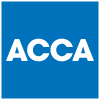2 min read
Thousands of small-business
owners and landlords say they are confused by Information Commissioners Office
(ICO) letters demanding a fee to ensure the protection of their customers’ and
tenants’ personal information.
The Information Commissioner’s Office (ICO) upholds information rights in the public interest, promoting openness by public bodies and data privacy for individuals. ICO is an executive non-departmental public body, sponsored by the Department for Digital, Culture, Media and Sport. The organisation covers the following:
- Data Protection Act
- Freedom of Information Act
- Privacy and Electronic Communications
Regulations (PECR)
- Environmental Information Regulations
- INSPIRE Regulations
- The re-use of Public Sector Information
Regulations
Data protection fee
Recently, the Information
Commissioners Office (ICO) has launched a campaign to remind small companies
and SME’s of their legal responsibility to pay a data protection fee. For most
small companies the charge is £40 or £60 a year. The move marks the start of an
extensive programme to make sure the Data Protection Fee is paid by all those
who need to pay it, unless they are exempt.
They apply to companies that store personal information which can be used to identify someone which is stored electronically such as a computer, camera or smartphone such as clients’ names addresses and telephone numbers for work purposes. It is likely you’ll need to pay and there is a fine up to £4,000 for not registering.
Fee Checker
If you have received a letter from the ICO, it is a useful reminder that you need to either pay your fee or let the ICO know you are exempt, so they can update their records. Alternatively, you can quickly and easily find out if your organisation needs to pay the fee by using ico.org.uk/fee-checker, unless your business is exempt fill out the form at https://ico.org.uk/no-fee
For companies unsure if they are exempt, there is a helpline
number: 0303 123 1113.
The charge will also apply to a wide range of landlords, institutions, including schools and solicitors, but not the police or anyone who stores information for judicial reasons.
CCTV
It is likely an annual fee payment is due for businesses holding personal information, for business purposes on any electronic device, including using CCTV for crime prevention purposes.
Be aware of scams
The ICO is warning companies to be aware of scams relating to payment of the data protection fee. Businesses that receive a letter, text message, email or telephone call from ICO representatives and want to check that it’s genuine please search ‘ICO fee’ using your usual search engine. Follow the top results to website links which begin with https://ico.org.uk, and this will bring you to the official website.
Staying compliant
Stay up to date with resources on
GDPR and compliance for small businesses by visiting ico.org.uk/hub for
more information.
We can help you with all aspects of business compliance. Please contact us for further advice and assistance.
Disclaimer: Content posted is for informational &
knowledge sharing purposes only, and is not intended to be a substitute for
professional advice. Each comment posted by third party readers/subscribers of
our website on topics is their personal opinion and due professional care
should be taken by you before you act after reading the contents of that post.
No warranty whatsoever is made that any of the posts are accurate and is not
intended to provide, and should not be relied on for advice.




